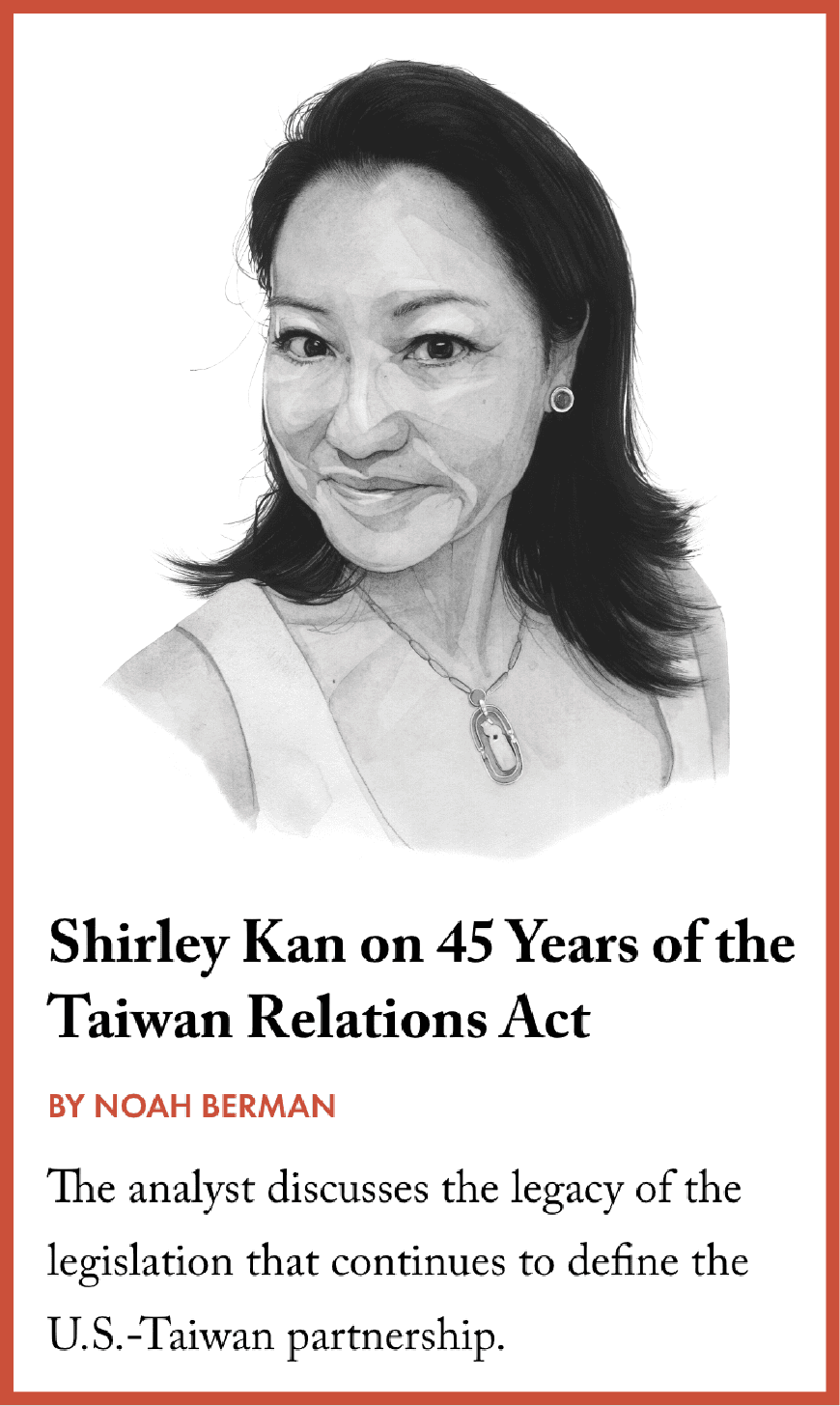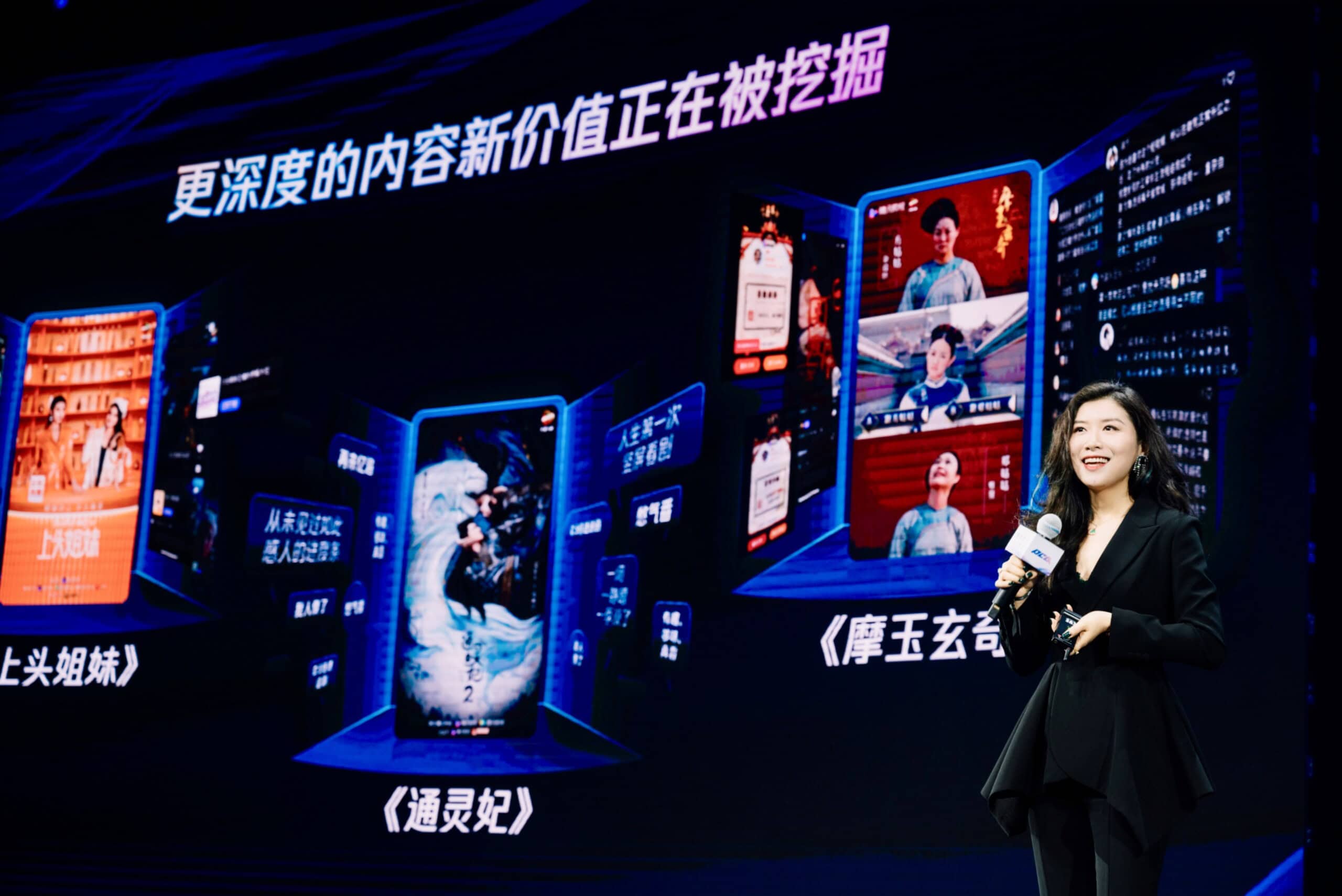Miles Yu has lived his version of the American dream. Born Yu Maochuan in Anhui province, he became intrigued with the U.S. after listening to Ronald Reagan’s calls for freedom broadcast over Voice of America. He arrived in the U.S. as an exchange student in 1985, remained and became a hawkish China scholar at the U.S. Naval Academy. In the first Trump administration, he served as Secretary of State Mike Pompeo’s chief China policy advisor and helped shift U.S. policy from engagement to confrontation. ”If Miles didn’t sign off on a policy recommendation, it wouldn’t move ahead for my approval,” Pompeo wrote in his book, Never Give an Inch. When Covid first reached U.S. shores, Yu suspected the outbreak began with a leak at the Wuhan Institute of Virology and he collected what he calls damning circumstantial evidence. Although the U.S. couldn’t prove the case, the suspicion added to administration hostility toward the Chinese government.

Illustration by Lauren Crow
Q: You were born in Anhui province in China and made your way to the United States. Why did you want to come to the U.S.?
A: In the 1980s, I was at Nankai University. Quite a good school in those days. I had the opportunity to come here as an exchange student to Swarthmore College. Swarthmore, not the Chinese government, paid for my education there.
This was during the Reagan years, and I was taken by what Reagan was trying to achieve. Even before that, when I was a freshman in China, I remember listening to Voice of America when Jimmy Carter and Ronald Reagan were running for president. It was very invigorating. What really inspired me was when Reagan talked about the issues that I cared about — individual freedom, free enterprise, those things.
You were inspired by what was going on in America. Doesn’t that argue that engagement is a powerful tool?
| BIO AT A GLANCE | |
|---|---|
| AGE | 62 |
| BIRTHPLACE | Shou County, Anhui Province, China |
| FORMER POSITION | Principal China advisor to Secretary of State Mike Pompeo |
| CURRENT POSITION | Professor, U.S. Naval Academy, Senior Fellow and Director of China Center at the Hudson Institution |
I’m for engagement but I’m for engaging with the purpose. I’m for engagement on fair terms.
The kind of engagement that has become something of a dirty word in Washington is engagement solely conditioned by Chinese terms. That is, you can only engage with China in areas that China likes, such as trade, technological transfer, education exchange, but not human rights, not intellectual property rights, not the full spectrum of issues that are basically the nitty-gritty of any bilateral relationship.
China cannot dictate how we should engage with it. China is a big country. We have to engage with China. But if China locks up 1 million Uyghurs, and still expects the United States to say nothing, that’s not engagement. That’s blackmail.
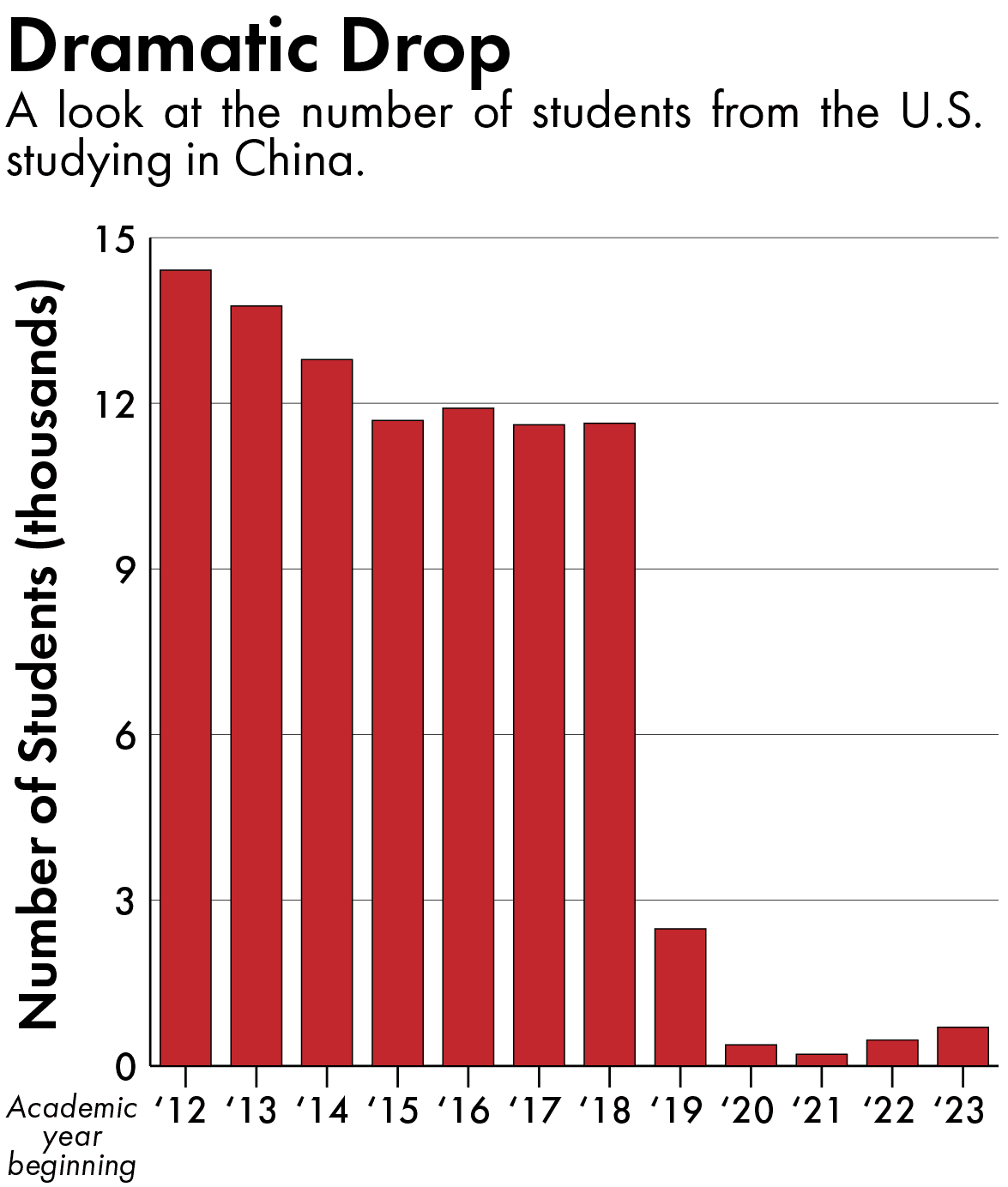
Today, as we speak, there are close to 300,000 Chinese students in this country. That’s the largest foreign student body of any country in the United States. But there are less than 1,000 American students studying in China. That’s incredibly unbalanced.
That is not the fault of the United States. China makes the conditions to study in China untenable. Many Americans don’t feel safe to study there. The Chinese government’s role is to eliminate those obstacles, to make China safe for Americans to study in China. That would be a very good engagement.
Are these exchanges to the benefit of the U.S.?
I have mixed feelings about that.
When Deng Xiaoping came to power, he realized that for China to be the dominant force in the world, it needed a huge pool of talented and trained engineers, mathematicians, and managers of the empire. He was a pragmatic man. He realized the Chinese system could not produce top-rate training facilities in its universities.
| MISCELLANEA | |
|---|---|
| FAVORITE BOOK | Witness by Whitaker Chambers |
| FAVORITE FILM | Once Upon A Time In America by S. Leone |
| FAVORITE MUSIC | Classical and opera, especially Puccini |
| MOST ADMIRED | Ronald Reagan |
Since 1978, Deng adopted a national strategy of outsourcing training for talented Chinese engineers and managers to the United States. That’s why each year hundreds of thousands of Chinese students come to the U.S. to study, including myself.
According to the Chinese Ministry of Education’s own statistics, about 86 percent of all Chinese students studying in the West return to China. If you look at artificial intelligence, the military-industrial complex, military schools — almost all of them are trained in the United States.
So, to answer your question, is it a good thing or a bad thing? It’s a good thing for the Chinese to study in America. American universities like the tuition fees. We are training China’s next generation of modern people. But it’s absolutely against the national interest of the United States to train generations of enablers of a repressive regime.
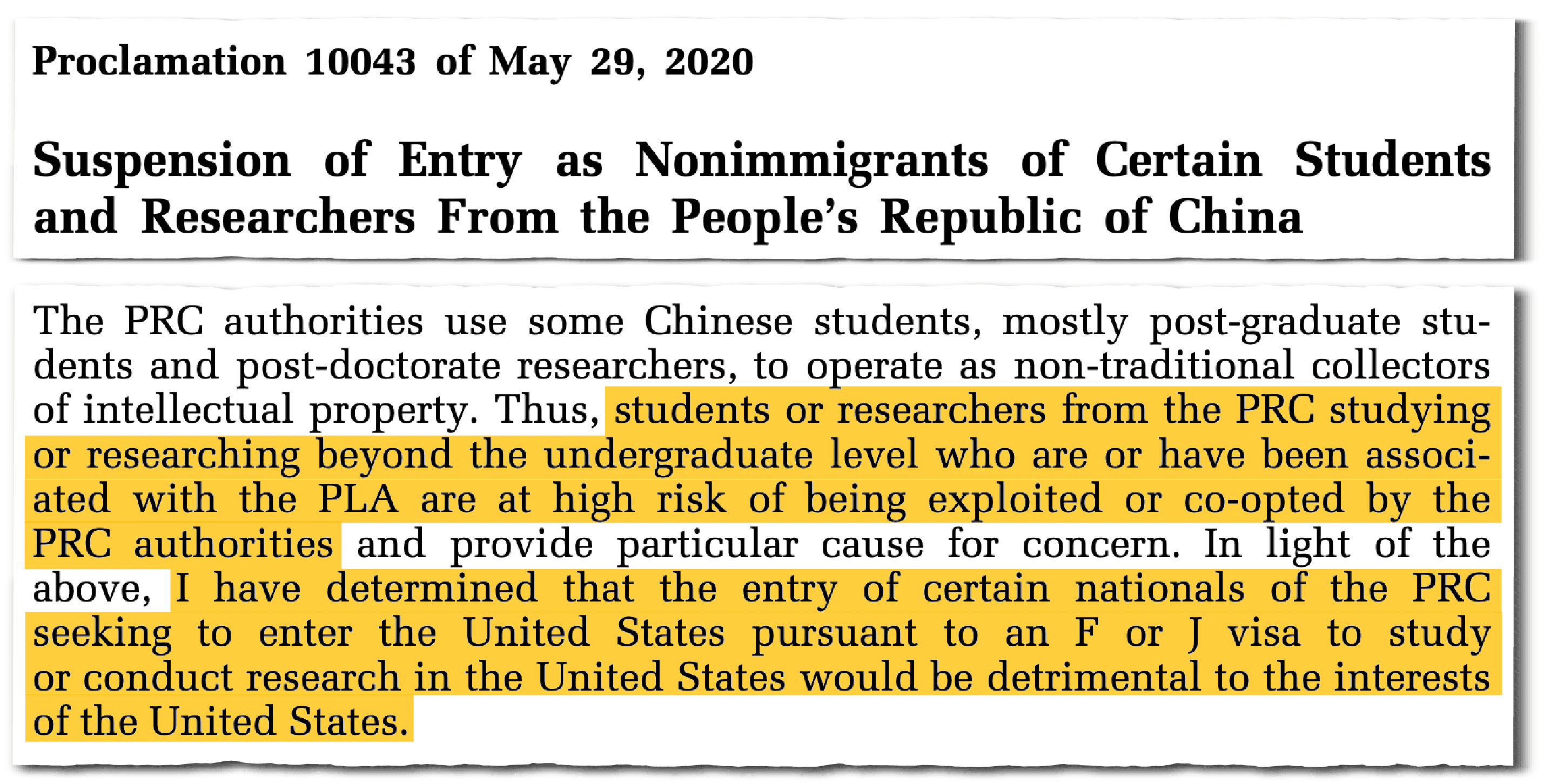
How do you tell the difference?
As long as we don’t see China as a normal country with a free flow of information, freedom of movement, and freedom of career choice, we should deny visas to students who are studying in sensitive areas. That trend started in the Trump administration.
Let’s talk about the Trump administration. Before you joined, you were skeptical about Trump. I saw a quote in the South China Morning Post, where you said, “Clinton’s likely to be tougher towards China than a Republican rival, Trump.” Why were you skeptical?
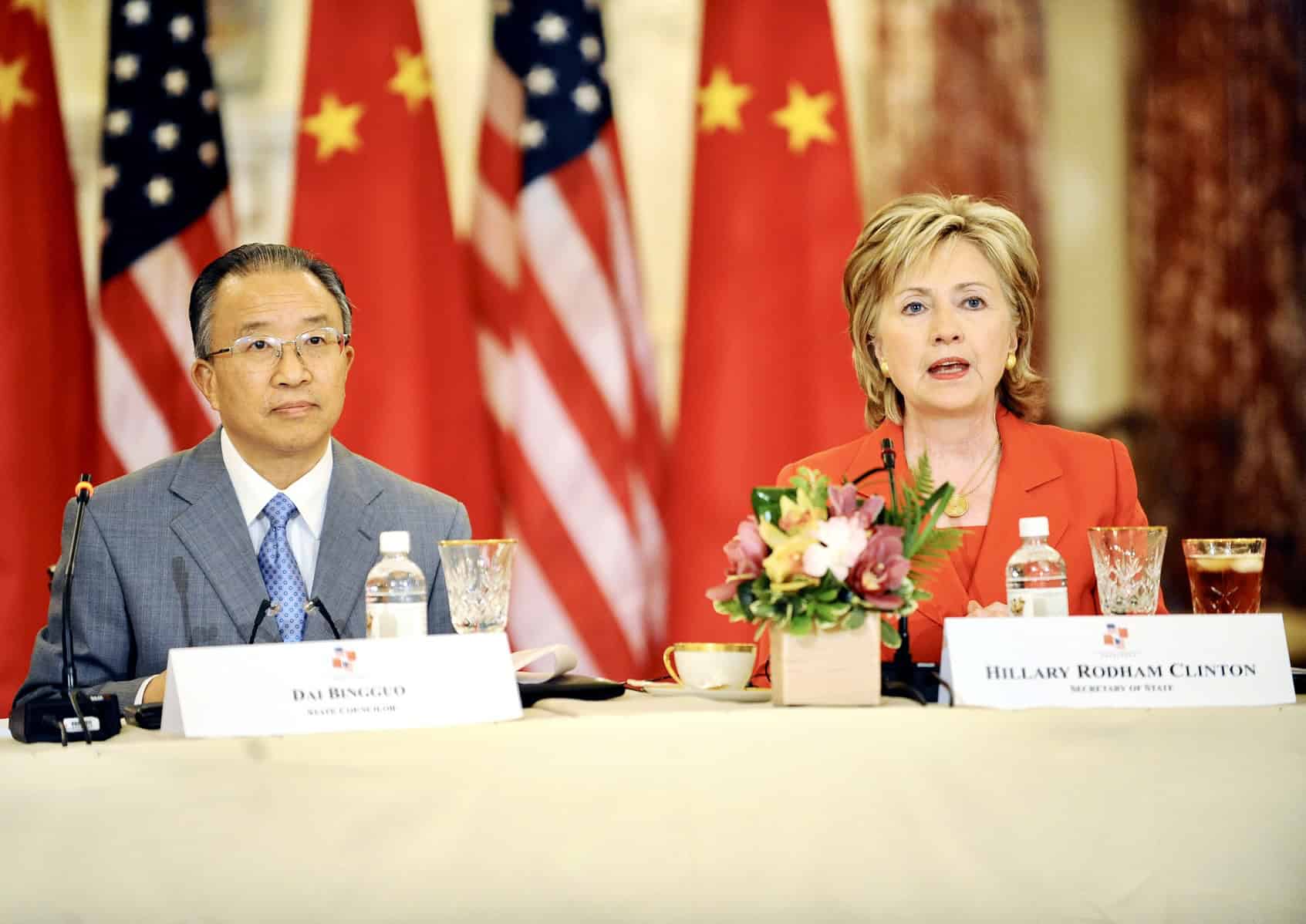
I said that? Well, I changed my mind.
During the first term of the Obama administration, when Secretary of State Clinton was in charge, she did initiate the Asia pivot. She began to realize the danger China presented to the United States. China really, really hated her.
In the first term, the Obama administration had a promising start. But in the second term, there was a total abandonment of the Asia priority. John Kerry didn’t care much about Asia at all. It was all Europe.
When Donald Trump was running for office, he did not have the political legacy of a true Asia pivot. He did have this very sharp instinct about China being a threat to the United States, but only from a trade point of view.
Everybody I worked with in the department had no qualms about getting tough on China. It’s not a Democrat or Republican approach, it’s the American approach to China that changed.
When Trump became president, I began to realize a lot of things in Washington, D.C. have very little to do with whether something should be done or should not be done. The fundamental issue is do you have the guts to do it. That’s where I see the decisiveness of the Trump administration.
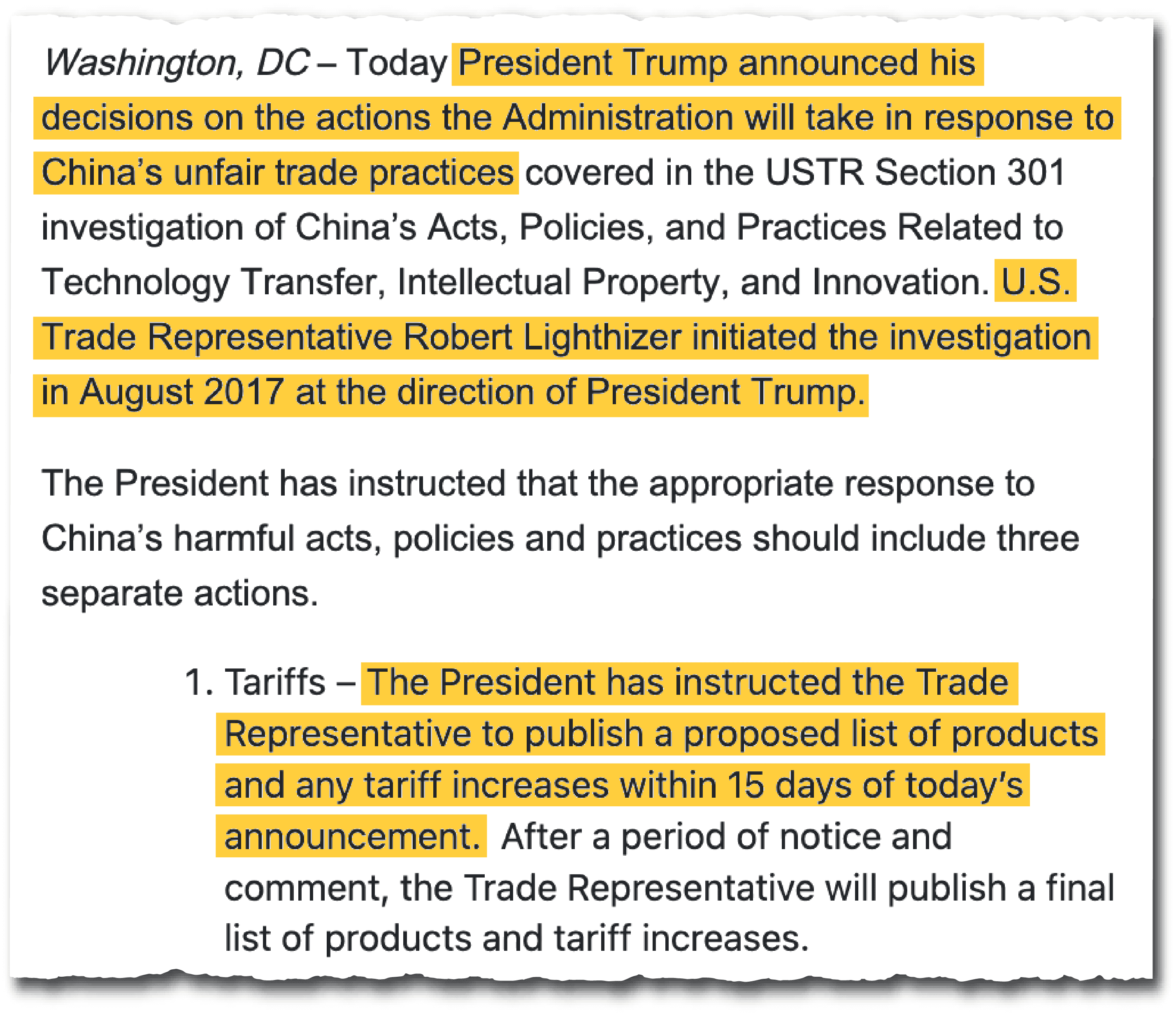
The biggest virtue of the Trump administration was that Trump did what he said he intended to do. How many times did people running for office say, ‘We’re going to move the U.S. embassy from Tel Aviv to Jerusalem to support Israel’s right to exist’? Nobody did that until Donald Trump came in.
He said we’re going to put tariffs on China. Everybody else said there’s a trade imbalance so we should negotiate with China. He said, ‘No, we’re going to do it.’
The first day I went to Secretary of State Mike Pompeo’s office as his policy advisor on China, I made myself a plaque that says 97.2 percent. Nobody knew what it was. But I did some research. In the 2015 – 2016 election cycle, 97.2 percent of [State Department officials who donated to presidential candidates] donated to Hillary Clinton. I was reminding myself I was working in a hostile environment.
But within two weeks I took the plaque down because Secretary Pompeo gave the marching order that we’ve got to work on China, China, China. The tone was so clear. Everybody I worked with in the department had no qualms about getting tough on China. It’s not a Democrat or Republican approach, it’s the American approach to China that changed.
It seems to me that the administration’s actions on China can be divided into before-Covid and after-Covid. Pompeo, in his book [“Never Give An Inch”], talks about his frustration in dealing with a president who put trade issues above everything else, at least before Covid.
I think your premise is a little bit troublesome. In the White House, yes, they were overwhelmingly focused on trade.
But President Trump gave Secretary Pompeo enormous space to develop China policy. So, we had free rein. From a policy point of view, our views on human rights, Xinjiang or Hong Kong were totally persistent. Only occasionally President Trump would call Secretary Pompeo and say, ‘Mike you know we’re now reaching the critical stage of the negotiation, could you tone it down a little bit?’ That was very rare.
But post-Covid, it seemed like: Release the hawks.
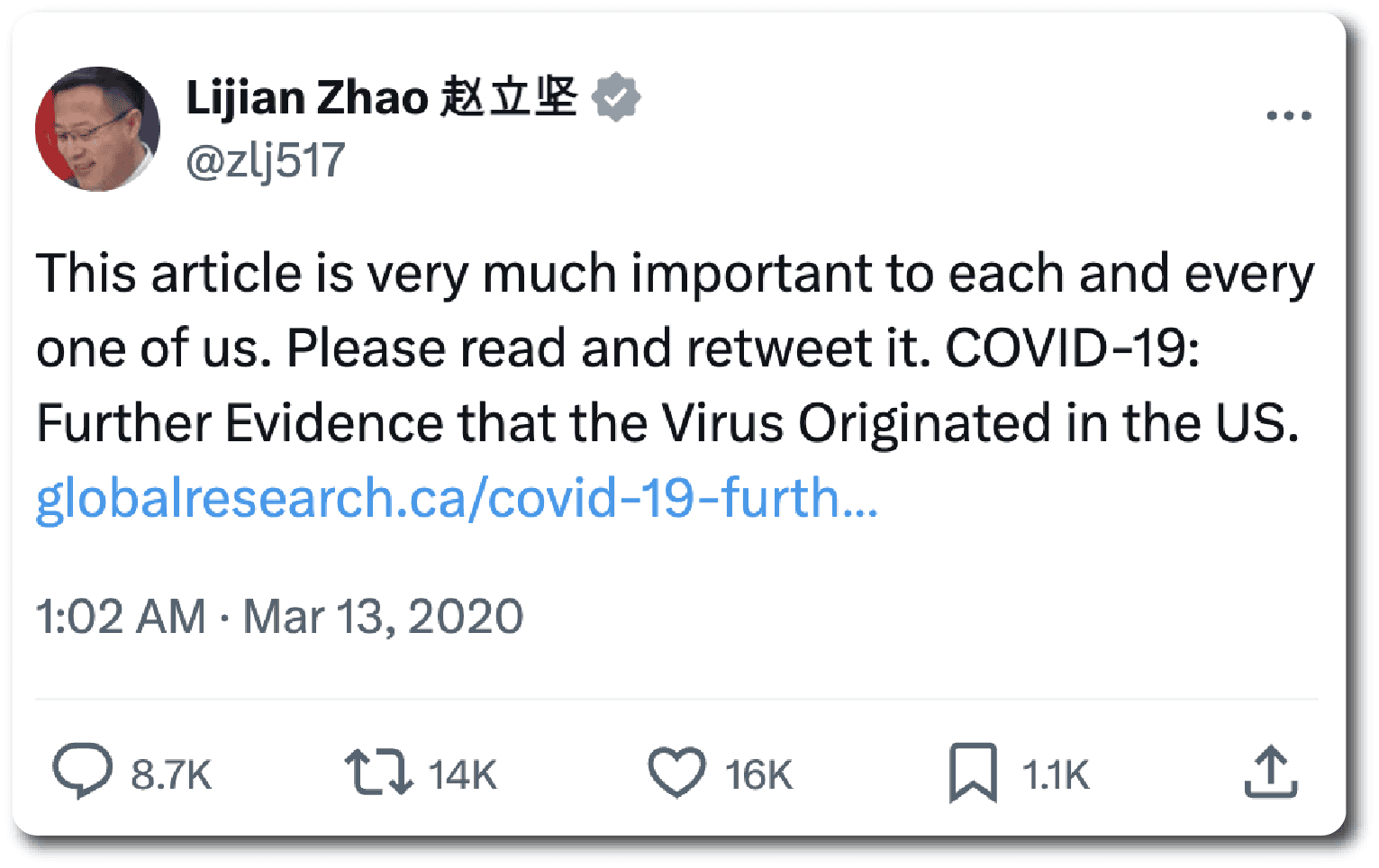
That’s right, post-Covid, the president got a sort of education. He was rightfully upset, particularly with the mendacity of the Chinese government. One thing that enraged him was when Zhao Lijian, the spokesperson of the Foreign Ministry in China, said, ‘The virus was brought to China by the U.S. Army.’ [Starting on March 12, 2020, Zhao made a series of statements claiming Covid originated at a government research lab in Fort Derrick, Maryland.] That impact was so powerful on the president.
As president, he couldn’t hold it in any longer. That’s when he said this is the ‘China virus.’ He didn’t want to use the phrase, but then when the government of China said openly [that the pandemic began in the U.S.], he said, ‘We’ve got to put the label on China. This is happening in China.’ [Trump started tweeting about the “China Virus” on March 16.]
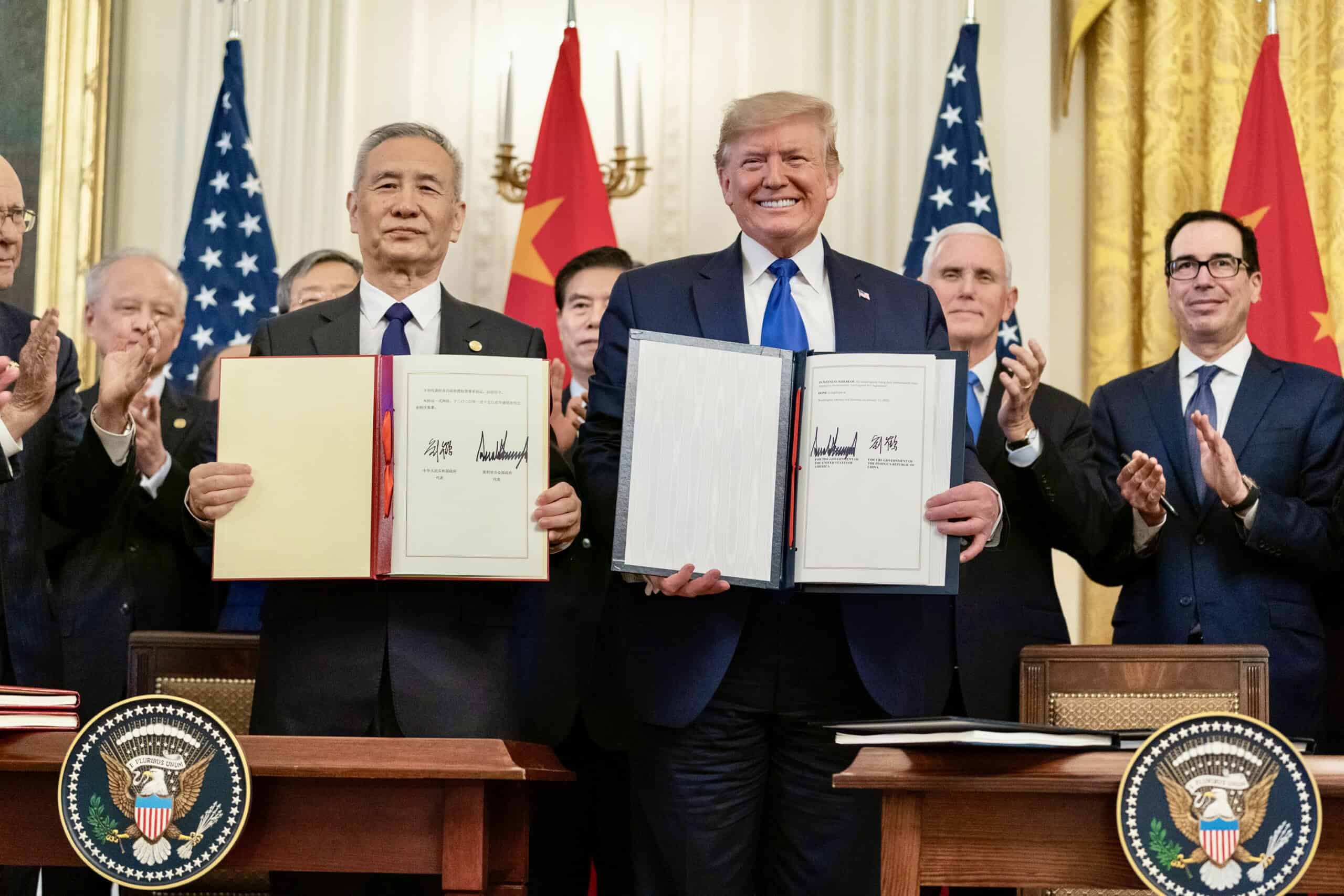
It only indicated the place of outbreak. There was nothing about the Chinese nation being responsible. The president wouldn’t buy that. Some people said, ‘racist, racist.’ It had nothing to do with that.
Covid was a landmark, yes. But there were other things too. The president had spent literally two years — half his presidency — working on the trade deal with China. That deal was finally signed. Within a week of the signing, Covid hit.
Do you think the Chinese knew about the danger from Covid when they sent the delegation here to sign the Phase One deal?
Absolutely. [Chinese Vice Premier] Liu He came here January 13th to around January 15th, 2020. The outbreak was known to the government between December 30th and January 1st. On January 1st, we know that the Chinese National Commission of Health sent a gag order to all these labs, including the Wuhan Institute of Virology, saying, ‘Destroy all the documents. Destroy the samples. Don’t cooperate with the outside world.’
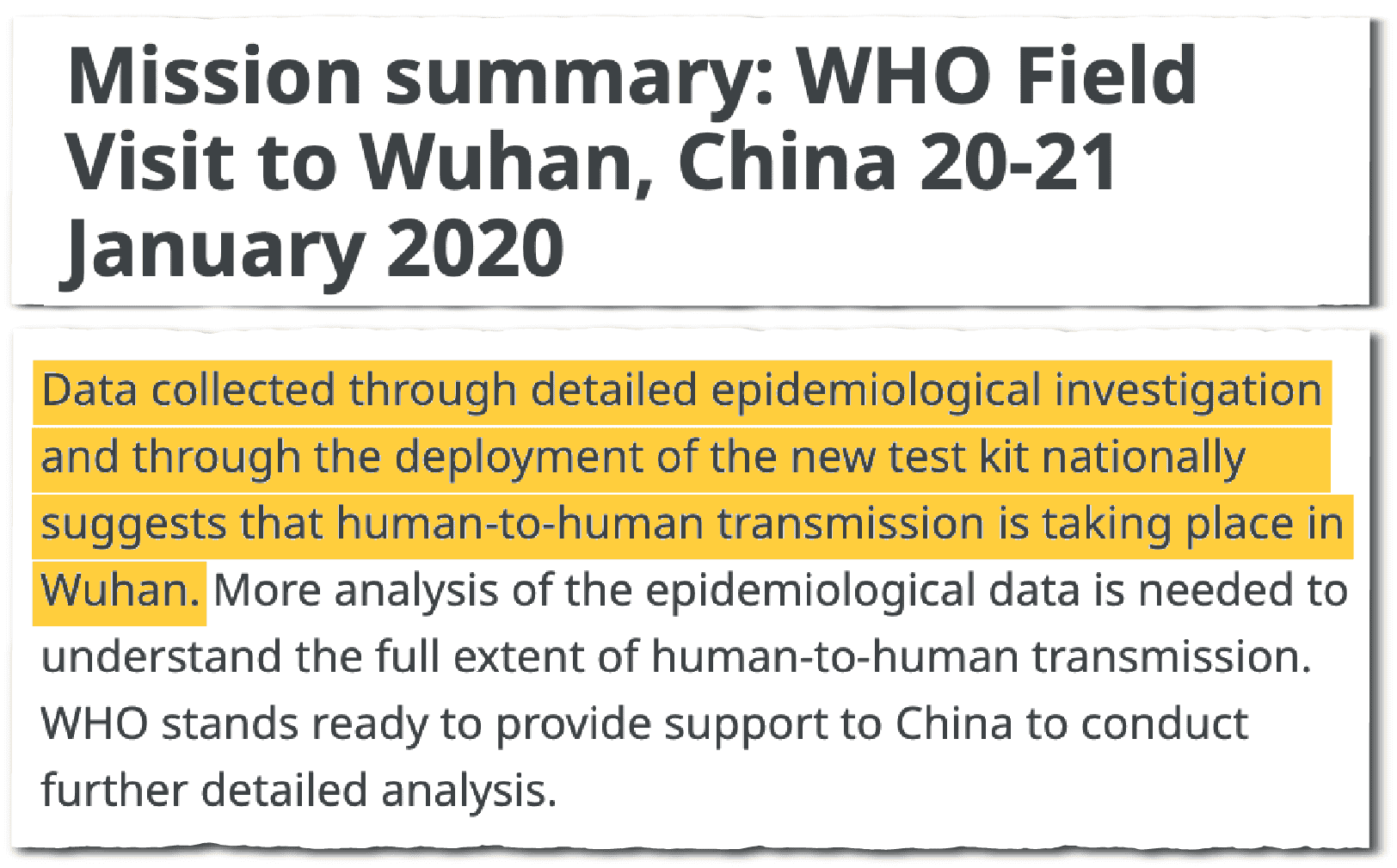
Samples had to be destroyed. No document was released. This is one of the reasons why we were so outraged. When Liu He came to the United States, we were assured the disease is not transmittable from human to human. The moment Liu He went back to China, the Chinese government said it’s possible to transmit from human to human. That was a bombshell.
Was it a bombshell within the White House too?
Absolutely. Immediately we realized there was a chokehold on us because we could not produce something as simple as a mask. China had stockpiled a whole bunch of PPEs [Personal Protective Equipment]. We couldn’t even get enough hand sanitizer. That’s when we realized our dependence on China is stifling. It’s killing us.
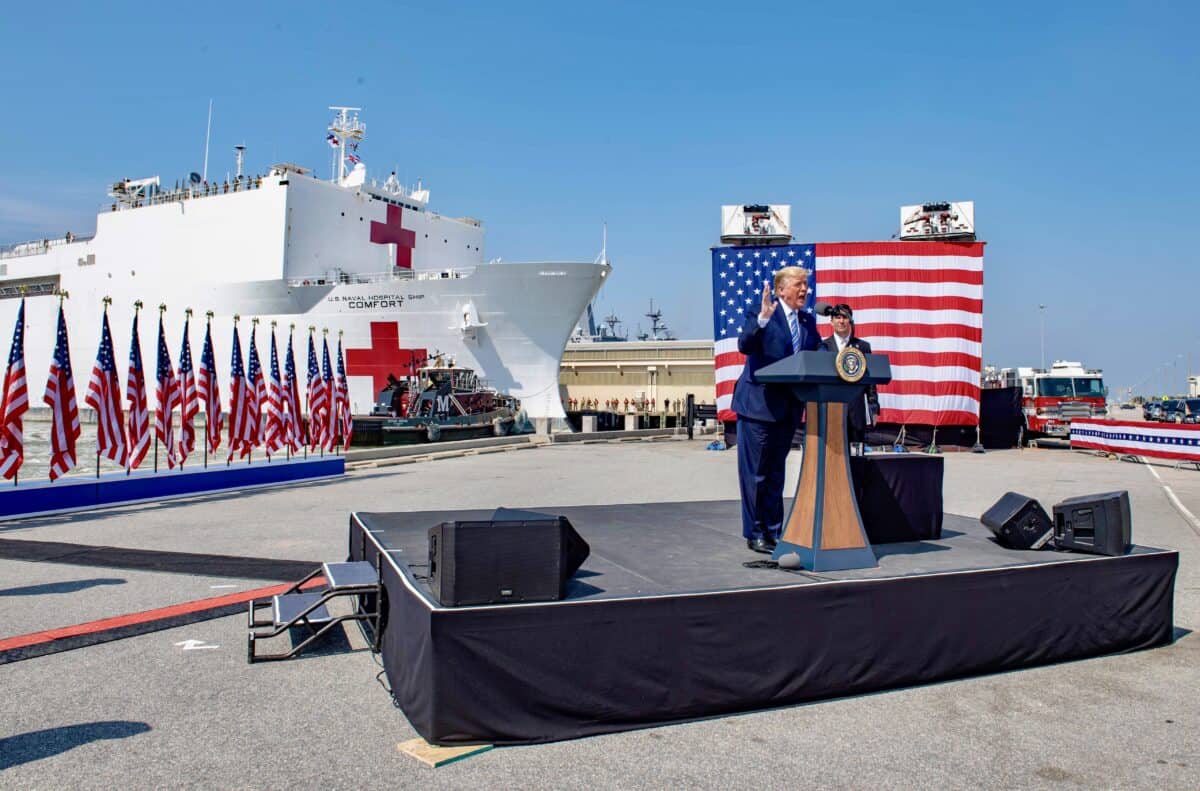
The president did several things. Number one, he appointed [White House trade advisor] Peter Navarro to head an industrial production board. That was basically a wartime measure to militarize the American economy. [Navarro coordinated the federal government’s use of the Defense Production Act to spur production of PPE.]
We also began to literally beg China for some basic supplies. That was very humiliating.
We asked the Commerce Department to come up with a list of critical materials that we had to rely on China for. That was the beginning of a landmark change, to create [supply chain] independence.
Another thing Trump did post-Covid was to approve trips by Health and Human Services Secretary Alex Azar and Undersecretary of State Keith Krach to visit Taiwan. Before, Trump didn’t seem to really care much about Taiwan one way or the other.
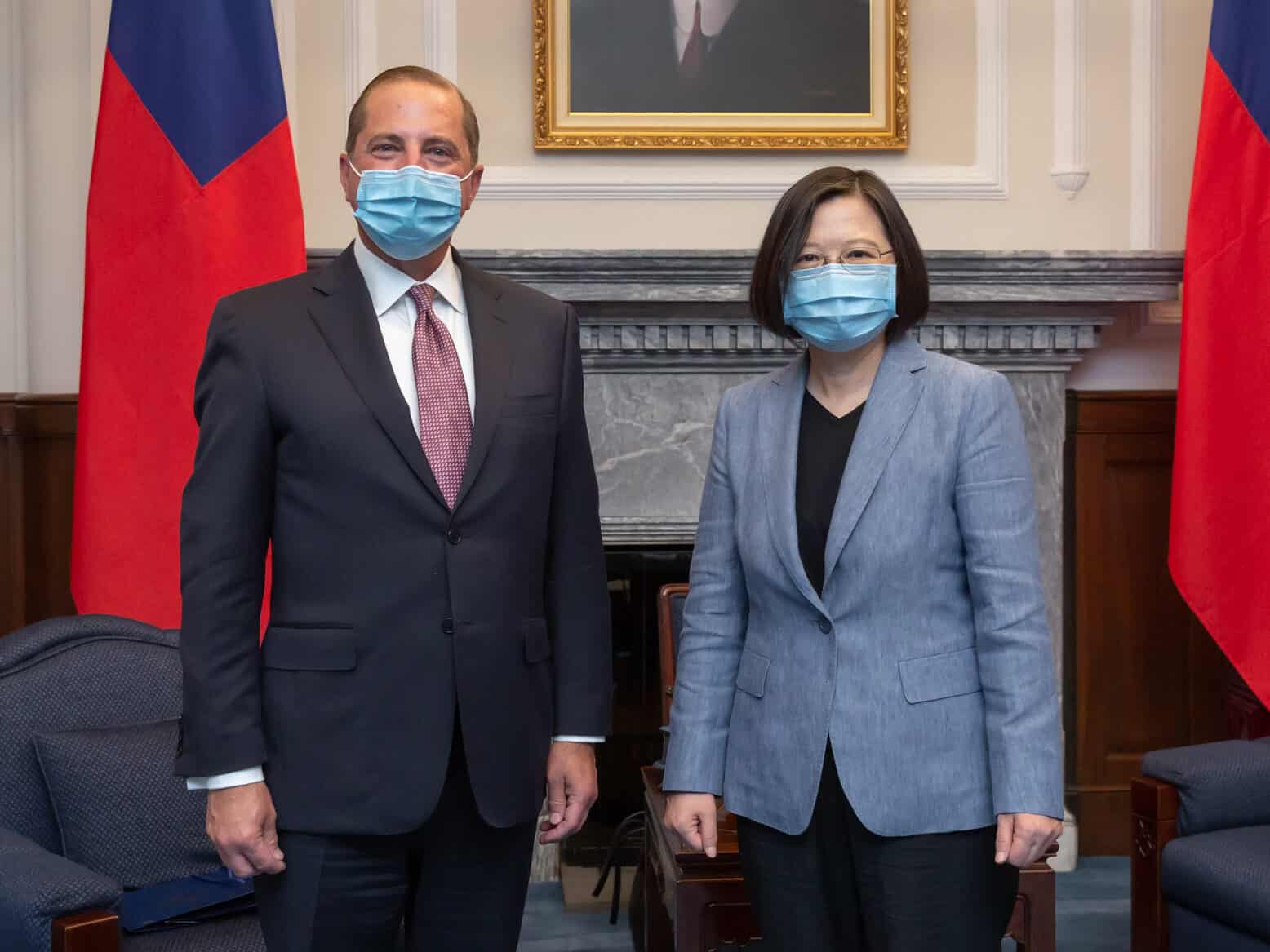
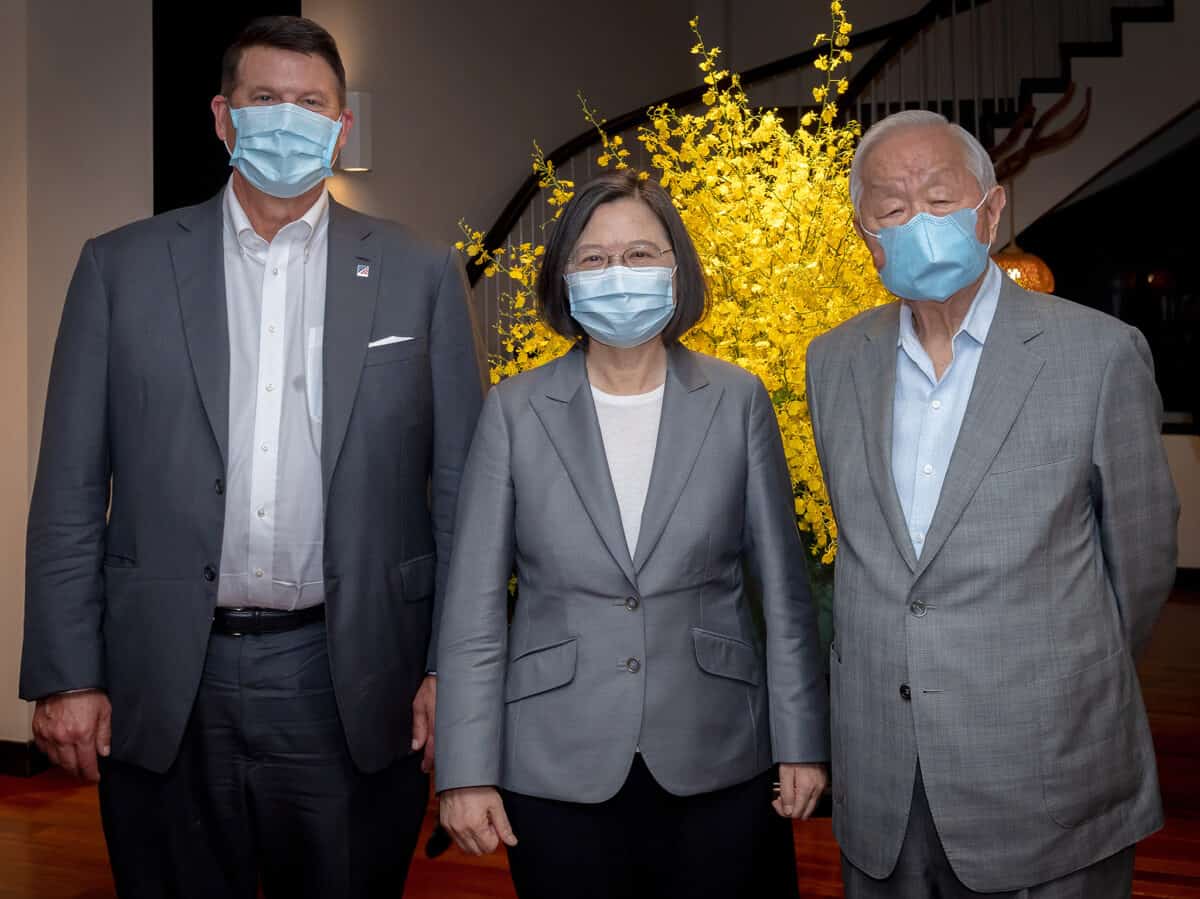
Left: Alex Azar with then Taiwanese President Tsai Ing-wen, Taipei, Taiwan, August 10, 2020. Right: Keith Krach with then President Tsai, and TSMC founder Morris Chang, September 18, 2020.Credit: 總統府 via Flickr
In the Trump administration’s first term, we wanted to develop a healthy relationship with Taiwan within the definition of the law. We developed economic and technology relations with Taiwan on a massive scale. We also fulfilled to the letter the Taiwan Relations Act and built Taiwan’s self-defense. We sold them weapons. Real stuff.
We also developed a very healthy non-official relationship with Taiwan, trying as much as possible to develop that outside of the context of the U.S.- China relationship.
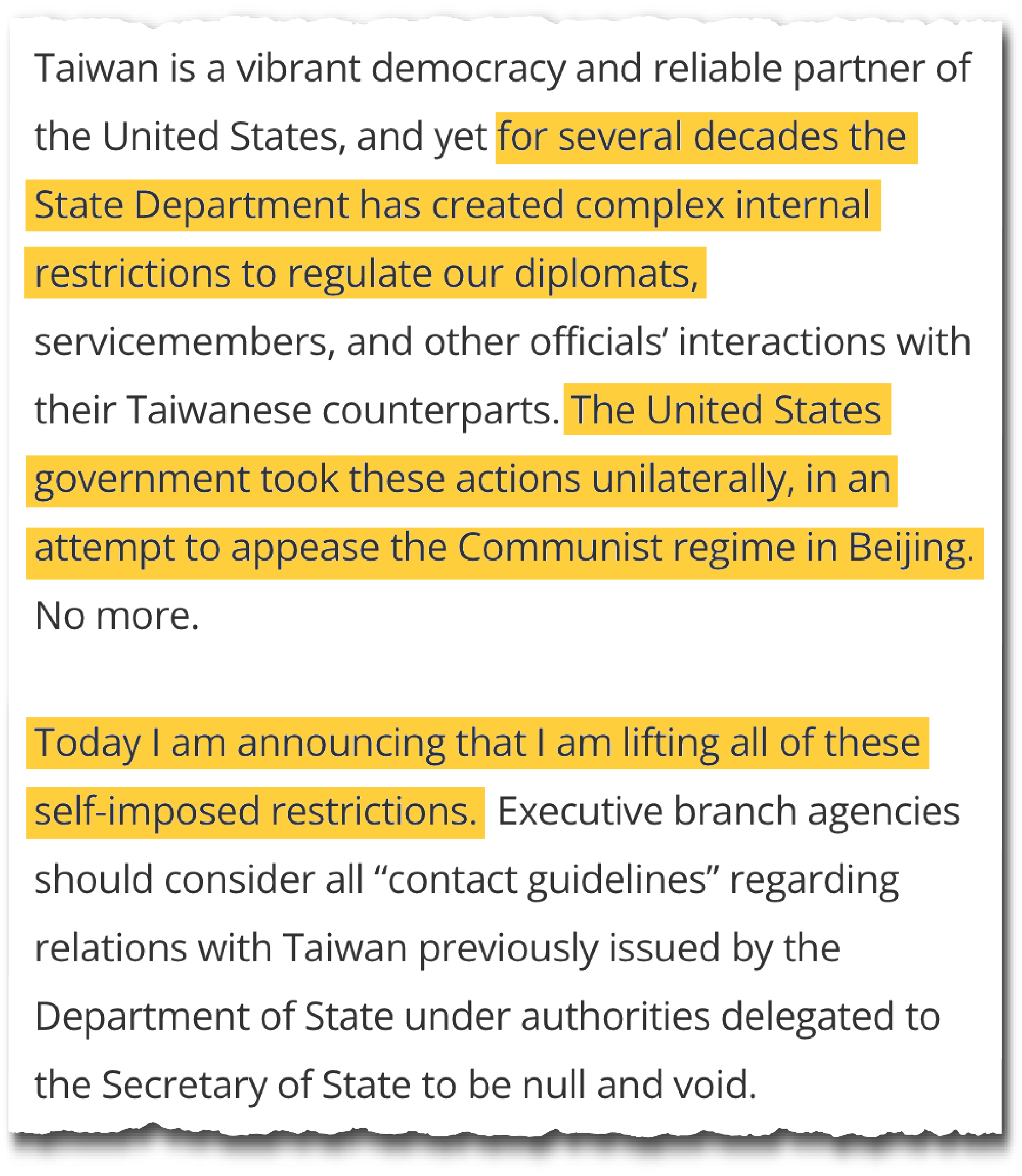
There was a self-imposed restriction, the Taiwan contact guideline, which is totally stupid. It’s just the State Department saying we want to make China happy so they could say, ‘Our [American] diplomats cannot shake hands with Taiwan diplomats if there’s a Chinese diplomat present at a party.’ Taiwanese diplomats also cannot come to the State Department through the front door. They go to the side door.
There’s no reason to do that. So we got rid of it. Secretary Pompeo told me, ‘Miles, tell the Taiwanese government, next five minutes we’re going to publish this decision.’ I picked up the phone and called the TECRO guy [Taiwan Economic and Cultural Representative Office]. There was silence. He was sobbing. He’d been treated like a second-class citizen for so many years.
Second, we resumed high-level official visits to Taiwan. Azar went there. This was also in the context of Taiwan being the paragon of government efficiency in dealing with Covid.
Miles Yu discusses China’s bio safety at a Hudson Institute event, March 12, 2021. Credit: Hudson Institute
Pompeo asked me to be the guy to investigate the origin of Covid from open sources. I wrote a very long report about it. Clearly WIV [Wuhan Institute of Virology] was a major suspect. I didn’t have a smoking gun, but I had a pile of circumstantial evidence, which has been declassified by the State Department. Nobody knew the intelligence on Covid better than the Taiwanese.
Didn’t Trump look at Taiwan in the context of this trade deal as something he could trade?
You mean Taiwan as a bargaining chip? I don’t think so. He was conditioned by the Taiwan Relations Act [to assure Taiwan can defend itself].
After the administration ended, Pompeo went to Taiwan. You were with him when Pompeo called for recognition of Taiwan [as an independent country]. Do you think that’s a good idea?
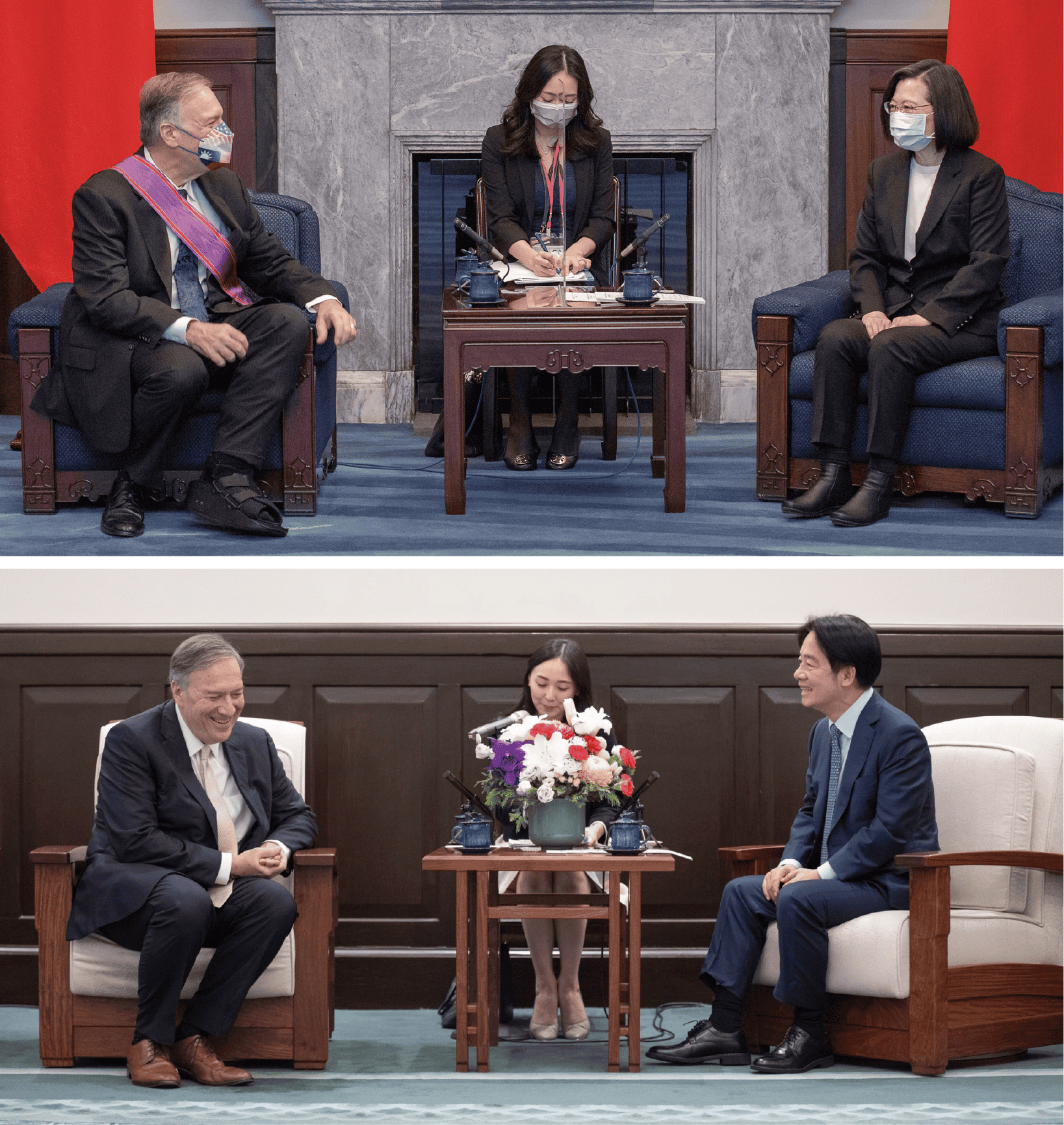
I totally support that. We’re dealing with the historical legacy of ambiguity, which is terrible. [The U.S. has long pursued a strategy of ‘strategic ambiguity’ regarding Taiwan as a way to keep China guessing about how the U.S. would respond in case of an invasion.] Ambiguity breeds conflict.
Strategic ambiguity is just nonsense. It never existed; it was never even policy. You cannot find anybody who would say, ‘You know what? We are not going to get involved if China invades militarily.’ It’s American policy to always tell the Chinese that if your military invades Taiwan, we’re basically involved. Biden said it clearly. George W. Bush said that clearly.
Another reason strategic ambiguity is nonsense is because no one in the Chinese high command has ever believed there is ambiguity militarily. The entire Chinese military modernization is based on the assumption that if China attacked Taiwan, the U.S. would definitely get in.
What is ambiguous is our diplomatic ambiguity on Taiwan’s status. We have never had a clear position on Taiwan’s diplomatic international status.
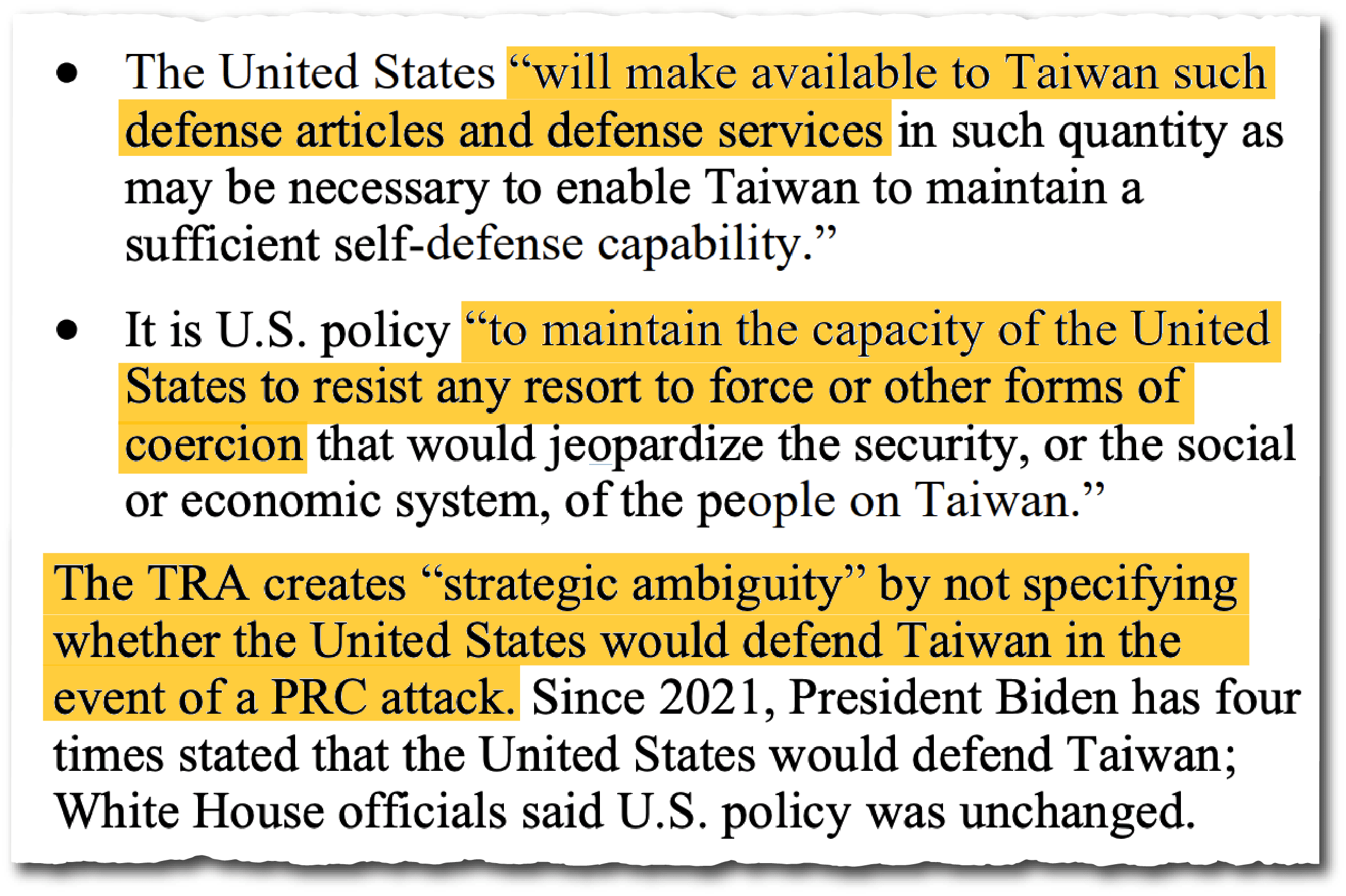
The Taiwanese government has always said, ‘We don’t want to declare independence.’ [Taiwanese President] Lai Ching-te said this. [Former President] Tsai Ing-wen definitely said this. [Former President] Ma Ying-jeou said this, but not so clearly.
They said, ‘We don’t want to declare independence for Taiwan because there’s no need for us to declare independence. Taiwan is already an independent country. It’s called the Republic of China.’
That’s a clever way of getting around that issue.
That’s right. That’s a very clever way. It’s also real. That’s why Pompeo said we have to recognize reality.
Do you think the second Trump administration will move in that direction?
It depends on what China does. Right now, we need the impetus. American democracy is heavily based on popular opinion. The Reagan Institute just came out with a poll saying 73 percent of Americans say, in the event of China declaring war on Taiwan, the U.S. should recognize Taiwan as an independent country. Pompeo’s declaration is not out of whack.
When I visited Taiwan, I expected that they would be at the forefront of defense electronics, anti-submarine technology — the sort of things that you could imagine would help in an invasion. But I didn’t see any of it.
First of all, the country is ruled by two main parties. One party [the KMT] is not really into that concept. There are still too many who want to unify with China.
All the parties heavily, heavily rely on the United States for protection and weapons. The military leaders all want the fancy stuff, the leading top toys. They have big ambitions. If I were them, I would not spend so much on submarines but on anti-submarine warfare because you cannot match China on submarines in the short term.
There’s Trump 1.0, and Trump 2.0, but I see the same person. There’s a different level of enthusiasm and a sharpened focus — less distracted by a trade deal with China.
I also think Taiwan has lived under the protection of the United States for so long that they got a little bit more comfortable. They have the Ukrainian problem. In June I went to the UK, Germany and the Czech Republic. What I saw in those countries astonished me. I saw a lot of young Ukrainian men there who should be fighting for their own country. They were war dodgers. I don’t blame them. War is brutal.
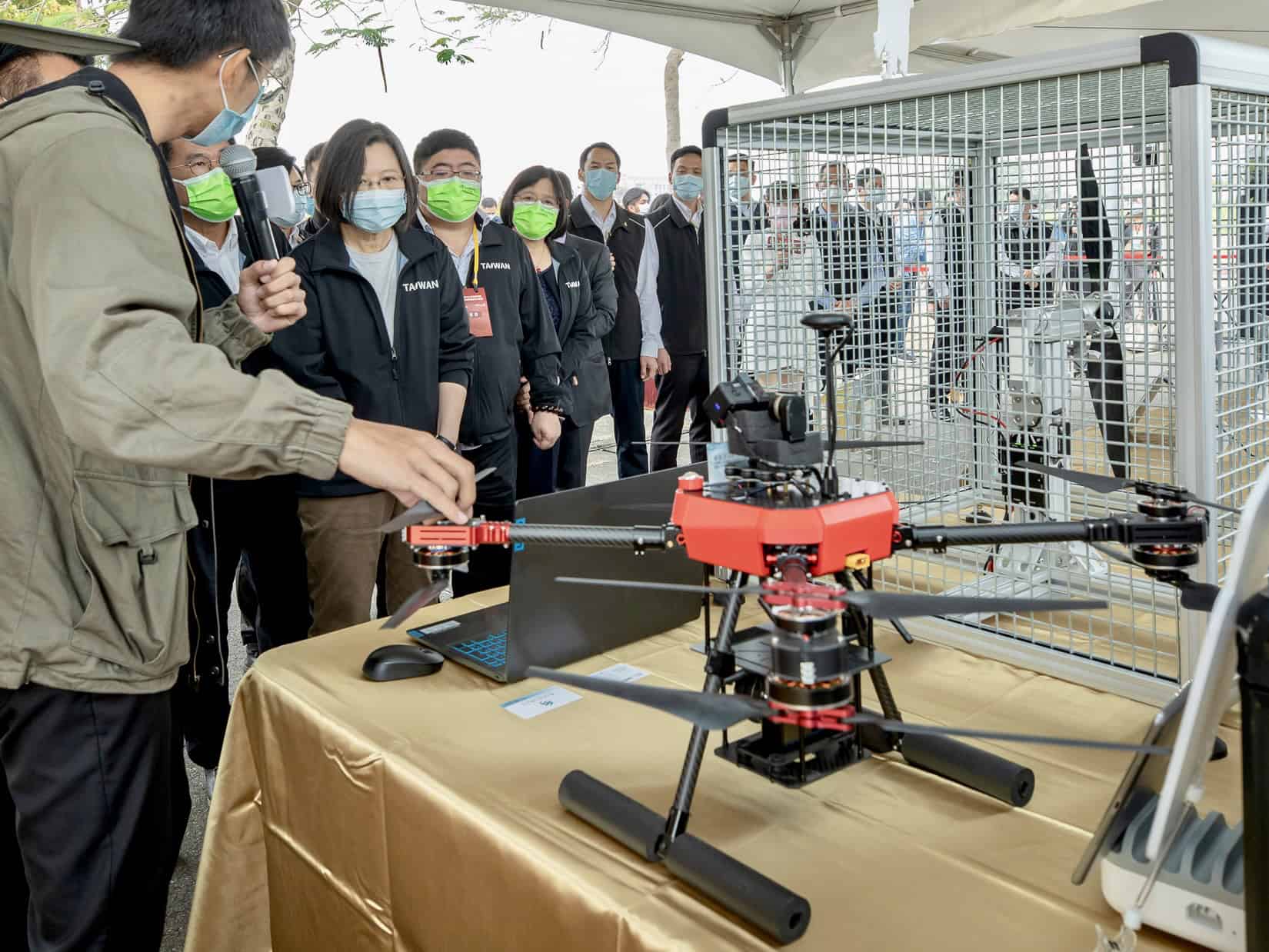
I suspect Taiwan has that sort of problem. It’s an affluent country. Generations of capable military-aged men aren’t battle-hardened. I expect a lot of problems with military personnel when the actual fighting comes.
But that can be compensated for by a lot of things. Technology is one. Ukraine has found a solution in drone warfare. If you use military drones, that can exponentially increase the military capability of one soldier. You can operate drones by the hundreds.
Let’s talk about Trump Two. Which Trump do you expect? The Trump of pre-Covid or the Trump of post-Covid?
I don’t see a dichotomy. There’s Trump 1.0, and Trump 2.0, but I see the same person. There’s a different level of enthusiasm and a sharpened focus — less distracted by a trade deal with China. And I think he understands some of the mistakes he made by being overly reliant on billionaires and retired generals.
He’s got a lot of billionaires in his proposed cabinet.
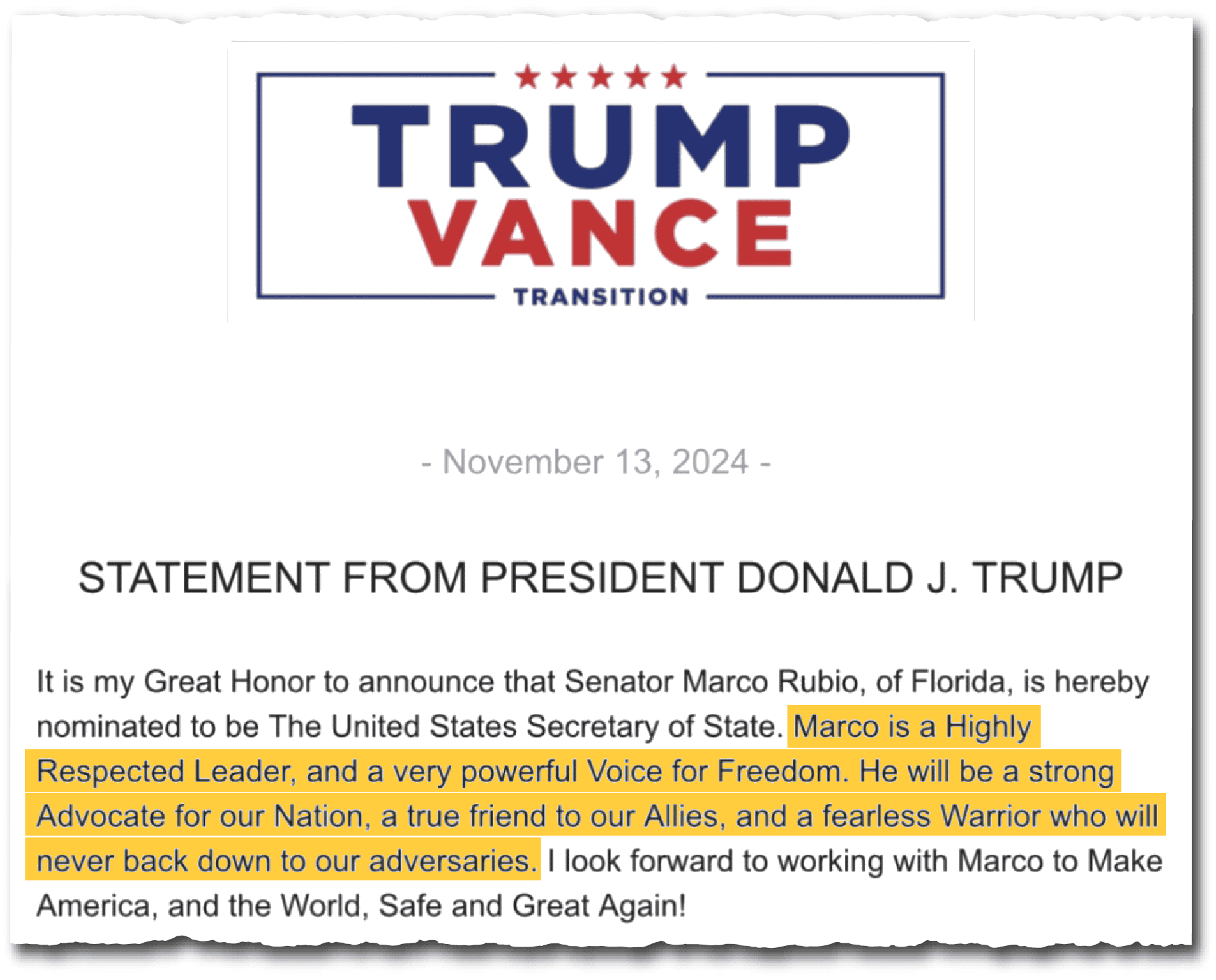
Well, different kinds of billionaires. Not Tillerson and those kinds of people. [Former Secretary of State Rex Tillerson had previously been chief executive of ExxonMobil and had a traditional view of foreign policy.] You’ve got people who are pretty hawkish, pretty young, and who understand the America First agenda. He trusts those people. He also chose Marco Rubio — probably his best choice — to head the State Department. Rubio is of Cuban descent and understands communism and how the world works. He’s been on the Senate Intelligence Committee and other committees on human rights. He’s been sanctioned twice by China.
Marco Rubio will greatly enhance America’s international reputation by arguing and fighting for the principles and values of the American system. He’s going to dramatically enhance the power of inspiration for the United States.
When Trump thinks about China, what do you think he wants? In the first administration, he wanted a trade deal. What do you think he wants this time when it comes to China and the economy?
Trump discusses imposing tariffs on China during a campaign rally in Ohio, March 16, 2024. Credit: C-SPAN
This time around it is clear that the Chinese model of governance, the Chinese model of economic cooperation is no longer about China buying 500 million tons more of Iowa corn or Idaho potatoes. He is going to look at how China operates its state subsidies, for example, or the manipulation of currency. And, of course, he wants to open up the Chinese market to American firms.
I think he wants to normalize the U.S.-China relationship in a very positive way. Number one, he wants to prevent a shooting war with China. Number two, he wants to promote American preeminence in many areas, not just the economy and technology. The rise of China itself is not a threat to the United States. It’s the rise of China under the control of the Chinese Communist Party that’s a threat.
Do you think he will try for another trade or economic deal?
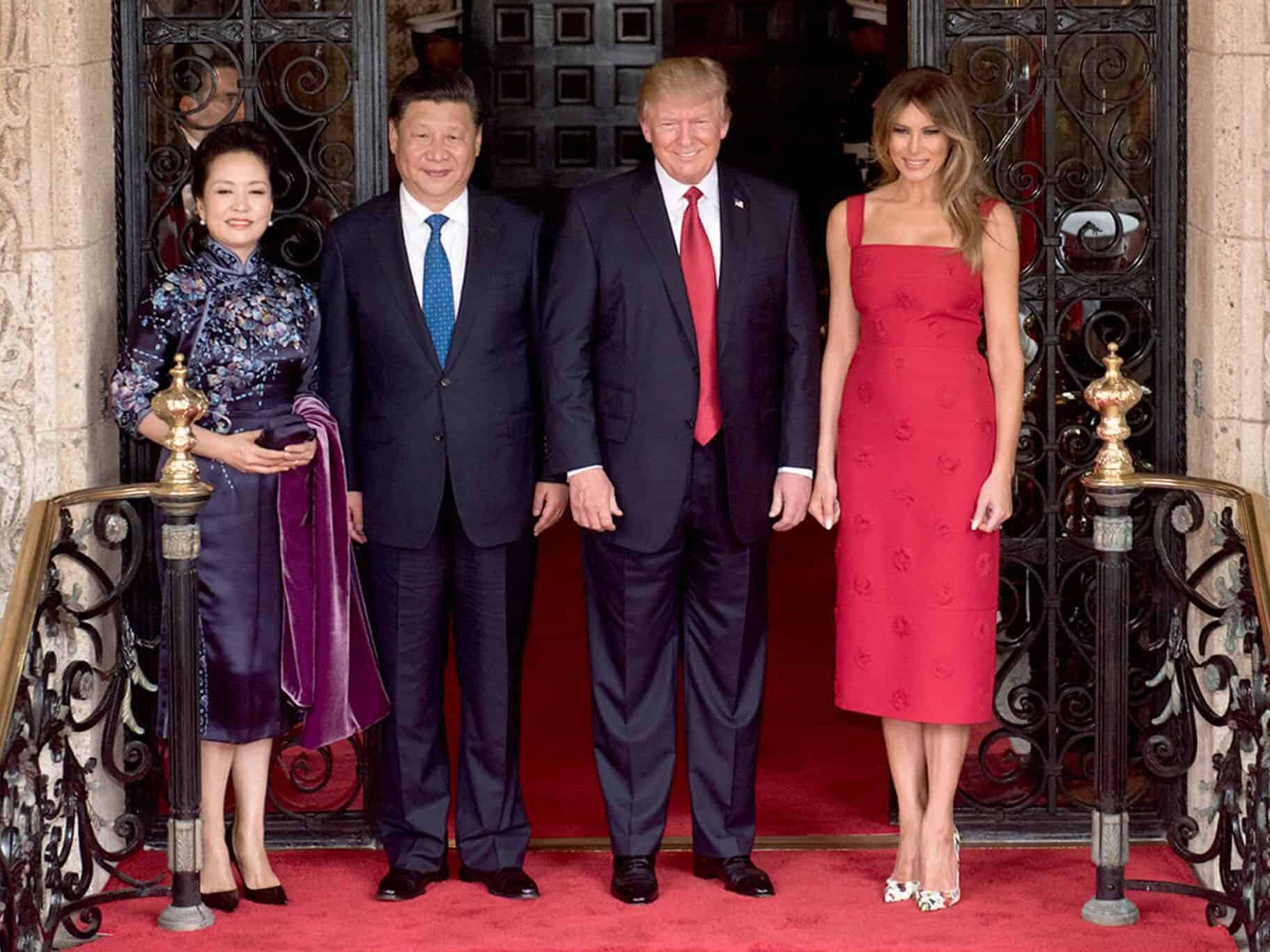
At this point, I don’t know. I don’t think he wants to try another trade deal with China without resolving the first Phase One deal. That one is utterly unimplemented. I think he’s going to revise it, and enhance it with more demands.
He seems to have a Great Man theory of foreign relations — that history is affected by great men and women too. One of the first things he did last time was to invite Xi Jinping to Mar-a-Lago. Biden never had him over. They had their summits on the sidelines of a G20. Now Trump even invited him to his inauguration.
Can you imagine if Biden invited Xi Jinping to his Delaware beach house? There’s no grandeur.
I suppose that’s true, but he could have invited him to Camp David. Do you think that Donald Trump will again look for a more fulsome relationship with Xi Jinping?
Oh, yeah. Donald Trump had an uncle who was an MIT professor of nuclear physics. Since he was a child he understood the devastating power of a nuclear war. So Donald Trump has been obsessed with avoiding nuclear war, even before he was president. That has motivated him to [try to] end the war in Ukraine to a large extent. He’s also going to prevent U.S.-China from getting into a shooting war, but not by unilateral surrender to China’s demands.
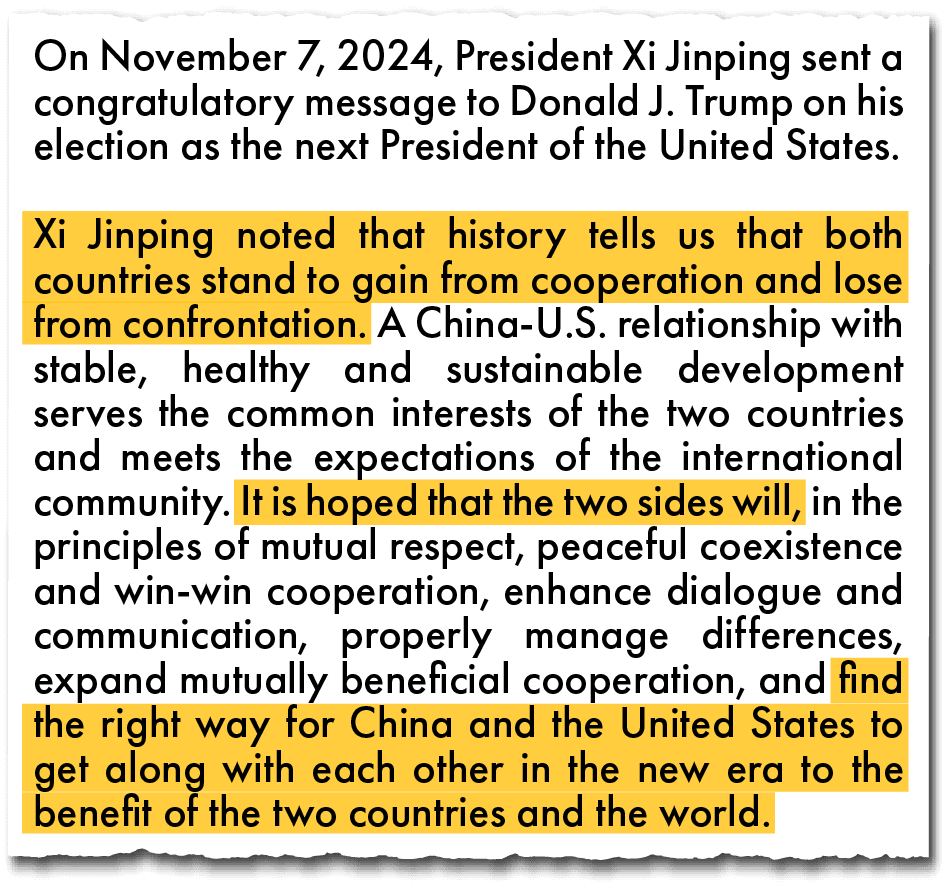
Look at how he operates, how he won his 2016 primary by beating 16 of his competitors. Look at how he has won global respect, some of it grudgingly. He’s a man of consequence. I don’t know whether that’s a great man or not. I call him the consummate New Yorker.
Doesn’t that argue that he’ll be looking for some kind of deal with Xi Jinping, one-on-one, a personal sort of diplomacy?
That’s his approach. That doesn’t necessarily mean that he has no principles. He subdued Kim Jong Un from going nuclear against the United States.
Did he? They’re still developing nuclear weapons.
Yeah, but during his four years, Kim Jong Un didn’t do anything. He could not. He did not conduct one nuclear test. He did not conduct one missile fire. So, those are incredibly great opportunities to grow peace. But in the meantime, [Trump] said, ‘I love Kim Jong Un. I’m in love with him. Thanks for the beautiful letter.’ This is his style. Does that mean he’s like a dictator? No, it’s just a negotiating style. [North Korea’s last nuclear test was in September 2017 during the first year of the Trump administration. North Korea conducted missile tests during the Trump and Biden administrations.]
During his business career, he was surrounded by adversaries. He knows how to deal with them. I think we should give him credit for that.
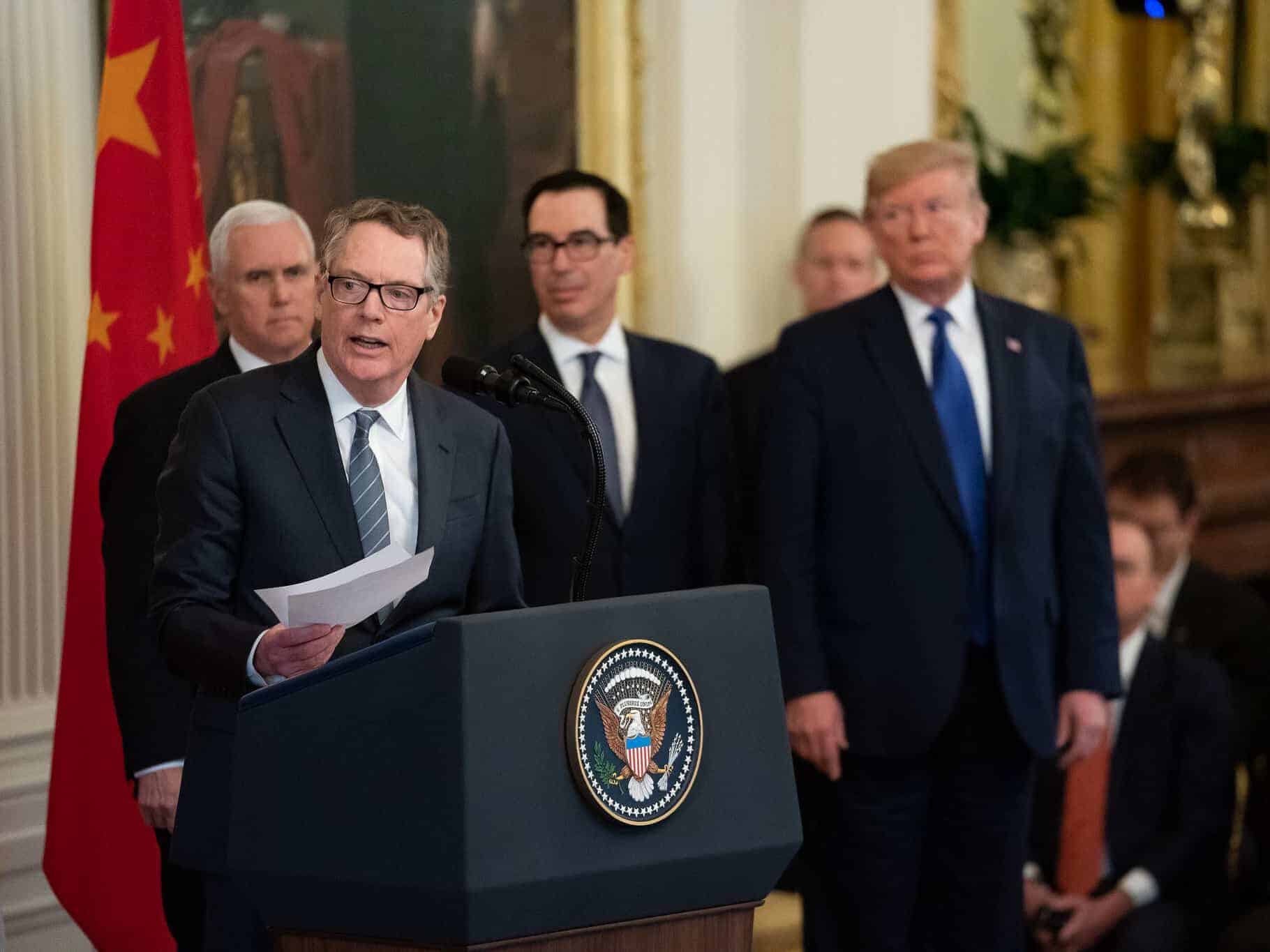
Former U.S. Trade Representative Robert Lighthizer wrote a book where he talked about what he called ‘strategic decoupling.’ Do you think that’s the goal of Trump 2.0?
Decoupling has never been American policy. The fundamental factor deciding the tenor, intensity, or friendliness of U.S.-China relationship is completely in Beijing, not in Washington. For example, people say, ‘Donald Trump, why did you start a trade war with China in 2018?’ Donald Trump didn’t start a trade war with China. China has always imposed high tariffs on the United States’ exports to China. So much of the stuff we do is responsive to what China’s been doing.
If you look at Xi Jinping now versus Xi Jinping in 2016 during the start of the first Trump administration, what’s the difference?
Xi Jinping is more empowered domestically and internationally. Domestically because he got rid of most of his political enemies that could potentially challenge his authority. Internationally because we didn’t have strong leadership to challenge him. He looked at the Biden administration’s appeal for cooperation as a sign of weakness.
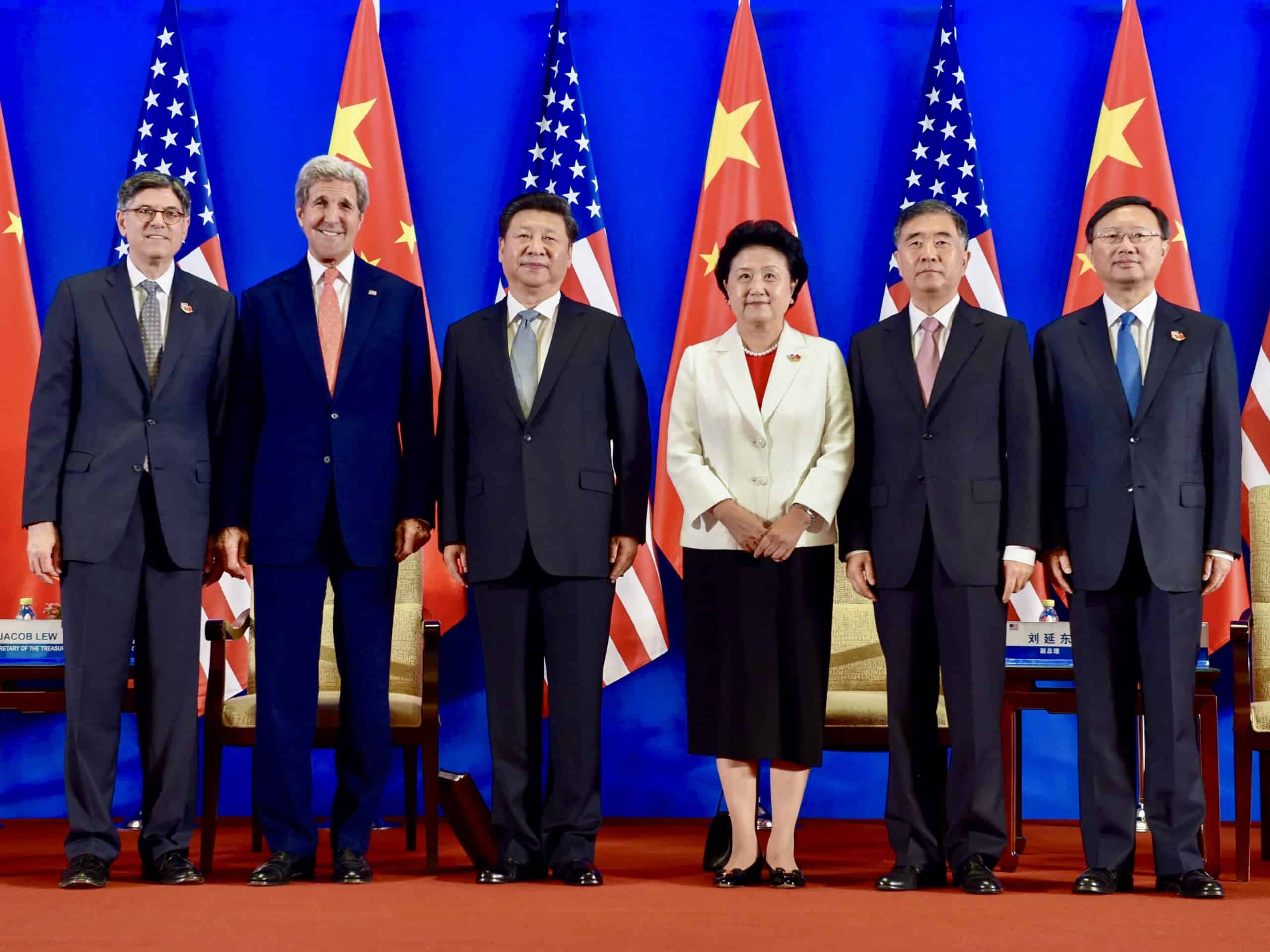
The Biden administration said, ‘Our job is to avoid confrontation.’ Yes, but if that’s your bottom line, they’re going to create a confrontation just to test your bottom line. On the other hand, Xi Jinping also is a much more discredited man than in 2016.
At home, he’s discredited because of the [anti-corruption] purges. His economic policy has also put the nation in deep, deep trouble. Literally, everybody wants to get out when they can. The social discontent is amazing. That’s one reason why he has to purge people more and more.
That kind of discontent creates paranoia on his part. He has no enemies, but like all dictators, he has no friends either. He suspects everybody. That’s why his power is not really that strong. He’s weakened. You look at Assad [in Syria], it’s the same thing. It is the ultimate fate of dictatorship.
Internationally, Xi Jinping has been almost completely discredited by his stance on Covid and, particularly, his stance on the war in Ukraine. He takes the side of Russia. Also he has increased his bullying activities in the neighborhood in China. China literally doesn’t have any friends along its border. South Korea, Japan, Taiwan, India, Vietnam, Philippines, you name it.
This is not a country of strength and a country of triumph. Right now, China’s economy is doing better on paper only, but its fundamentals have rotted.
What does that mean for the Trump administration in terms of dealing with China?
We have more leverage to deal with Xi Jinping’s playbook. There will be more consequences if he doesn’t comply, not just with American demands but international demands too.
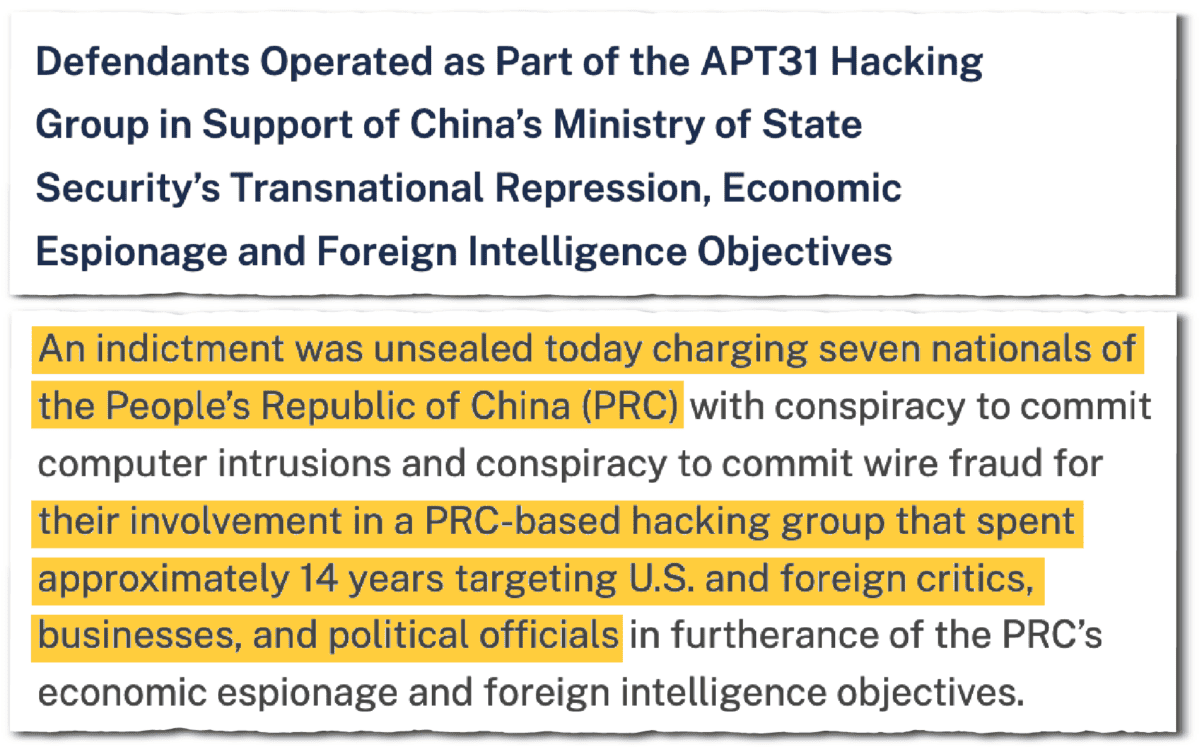
State-sponsored massive hacking of American telecommunications companies? No president should tolerate that. Hacking into American political candidates’ phones? That shouldn’t be allowed. We’re not dealing with an ordinary adversary. We’re dealing with an adversary of enormous resources and enormous mendacity and propaganda. China is very successful in what is called its United Front work. Many American elites are acting on behalf of China.
In an interview I had with Trump’s national security advisor Robert O’Brien, he said that he and his deputy Matt Pottinger hoped to peel off Russia from China in what might be called a reverse-Kissinger, by arguing to the Russians that the Chinese would ultimately want to reclaim the territory that was taken by Russia. Do you think that’s a realistic goal?

I don’t think that’s necessarily the goal; it’s one of the goals. We have to realize that China and Russia are pretty much a part of a united front against the Western order. But also China and Russia have a clash of ambitions. They have vastly different interests. Russia wants to be relevant globally. China wants to dominate globally. Nobody of enormous ambition like Vladimir Putin wants China to be a dominant force.
China is not the leader of the world. It has temporary allies. But there are fundamental differences among these allies, and their leaders have personal ambitions. So there is room for strategic triangulation.
…during the first term when there was Russia, Russia, Russia, Donald Trump tweeted many times that the fools in Washington accused me of being Russia’s puppet, but the real enemy is not Russia, it’s China.
But I don’t think that should be the Americans’ only approach. Vladimir Putin is just as bad as Xi in some aspects. We have to make sure that we don’t want to say, ‘Vladimir Putin, you’re my friend now, despite what you’ve done to other countries.’
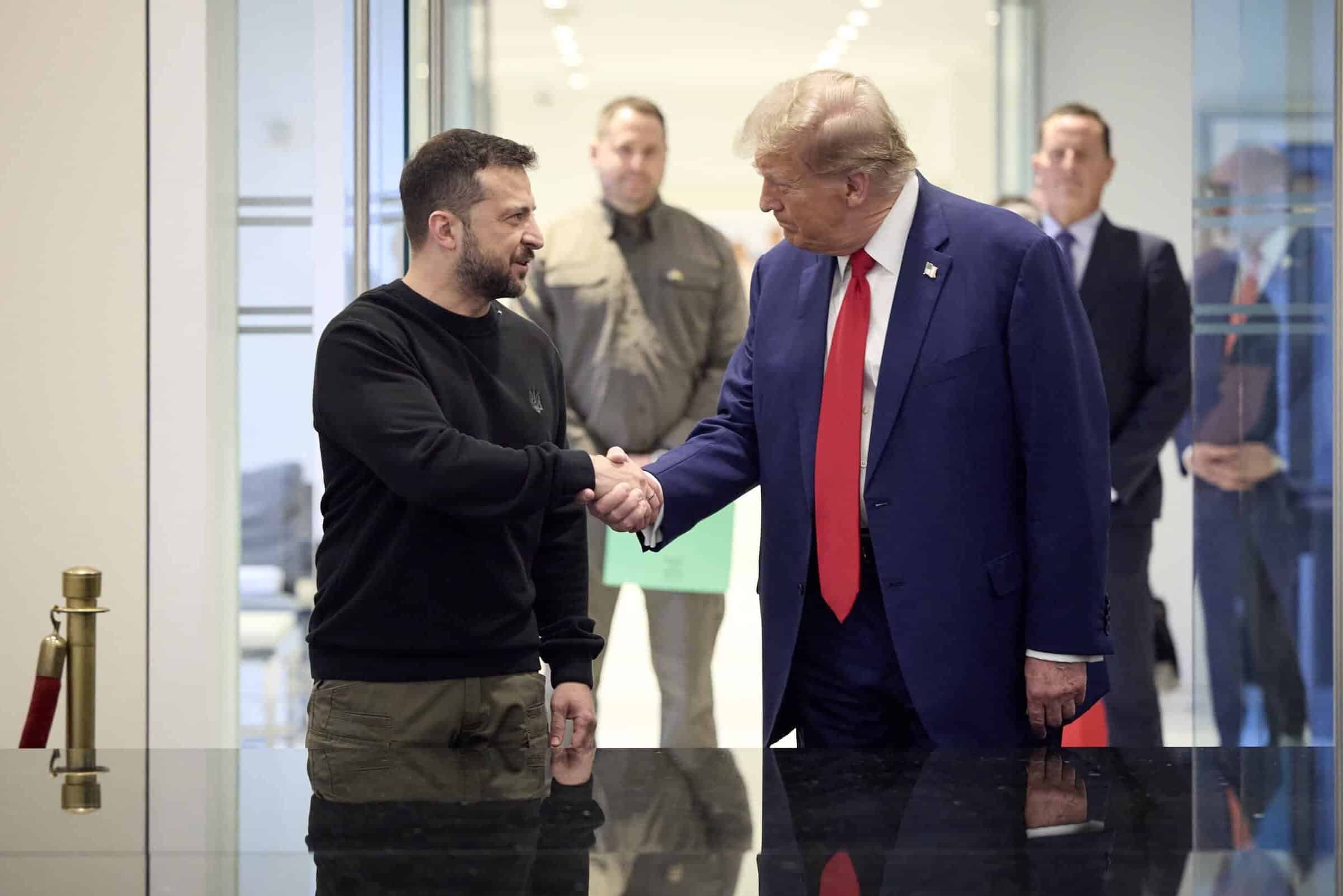
What are the chances of Trump convincing or pressuring Xi Jinping to reduce his support for Russia in hopes of a deal over Ukraine?
Trump’s primary focus is to negotiate directly with Putin and Zelensky to end the war. Period.
China, in my view, and I think President Trump’s view, is the main focus. If you recall, during the first term when there was Russia, Russia, Russia, Donald Trump tweeted many times that the fools in Washington accused me of being Russia’s puppet, but the real enemy is not Russia, it’s China.
Are you concerned about the role that Elon Musk will play as an outside advisor, given his enormous interest in doing business in China?
I don’t think that should be my top concern. There are always checks and balances. We need somebody like Elon Musk to think out-of-the-box. The guy’s a genius, number one. Number two, while there is the issue of conflict of interest, I think this country never has a shortage of lawyers and ethics people, so they can work things out. The important thing is we need people like Elon Musk to think of different ways to make government more efficient.
Do you hope to be part of Trump Two?
Margaret Thatcher said that in order to change a country, you must win the argument first and then change the policy. I’m more into winning the argument. Policy is secondary to me. With the argument, I can do that inside or outside [the government]. As a matter of fact, I prefer to do it on the outside because I’m much freer. But I will serve the country in whatever capacity, inside or outside of Washington.
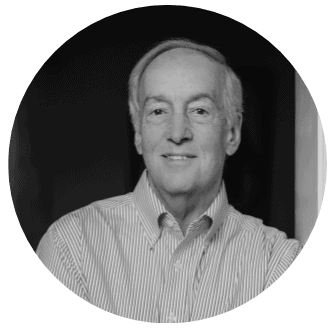
Bob Davis, a former correspondent at The Wall Street Journal, covered U.S.-China relations beginning in the 1990s. He co-authored “Superpower Showdown,” with Lingling Wei, which chronicles the two nations’ economic and trade rivalry. He can be reached via bobdavisreports.com.


